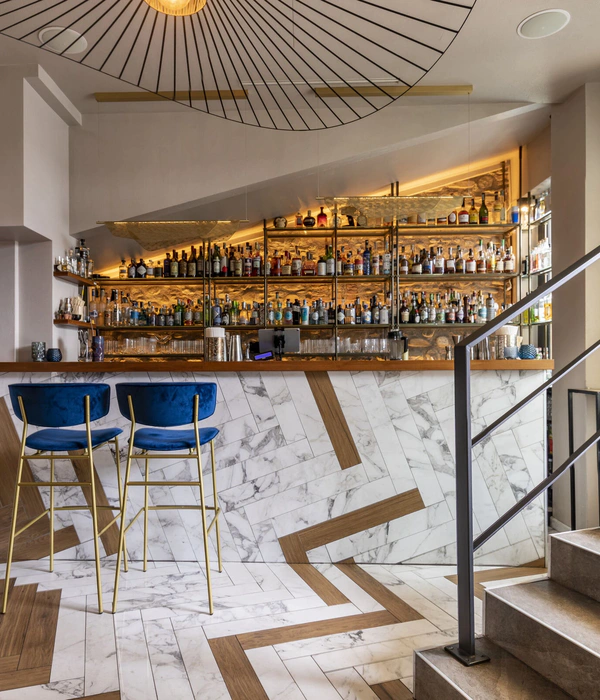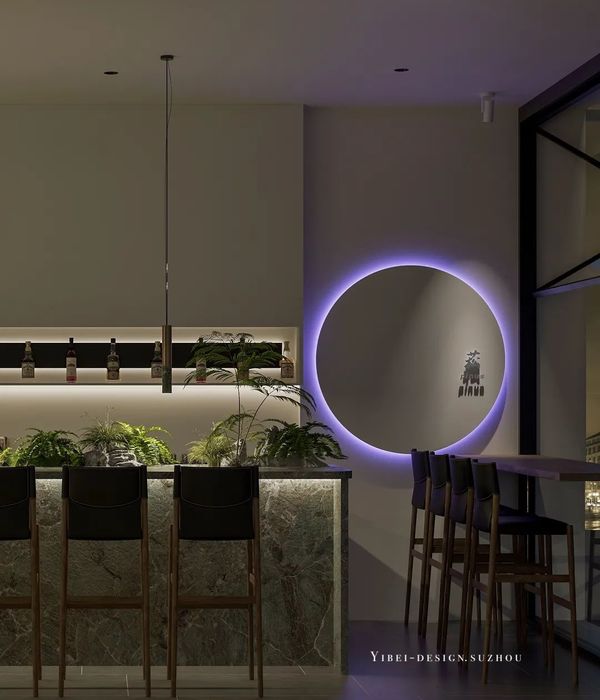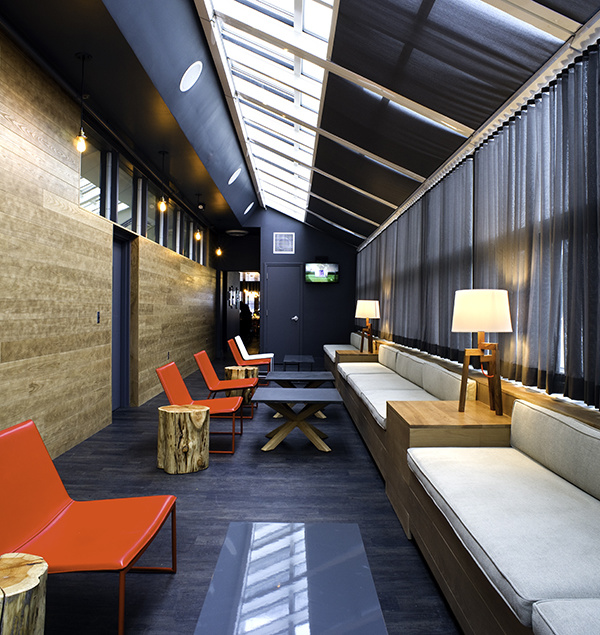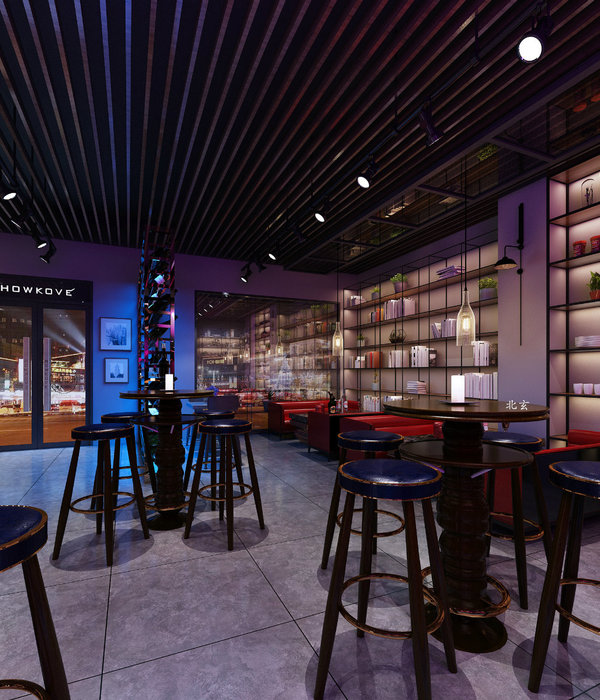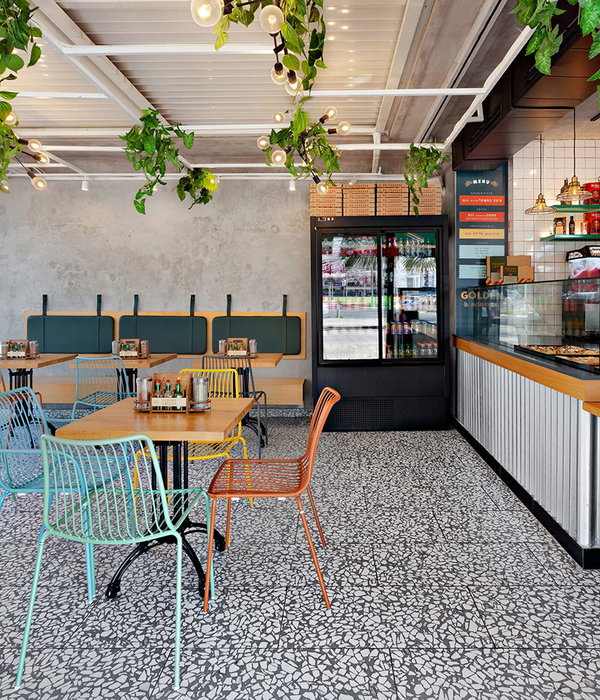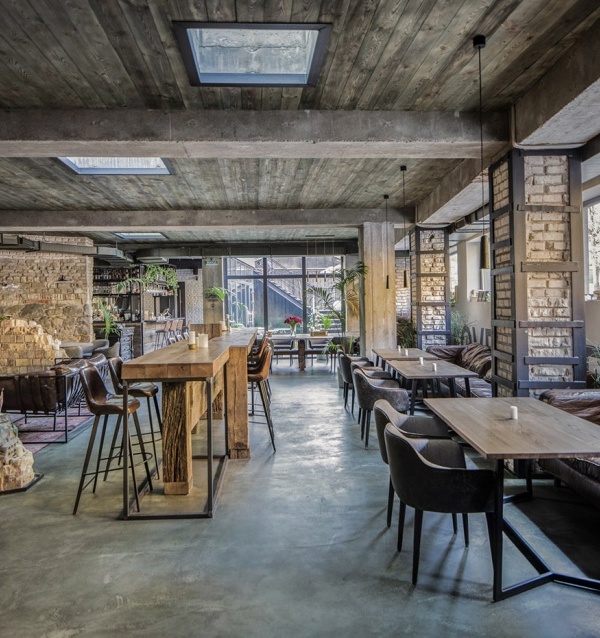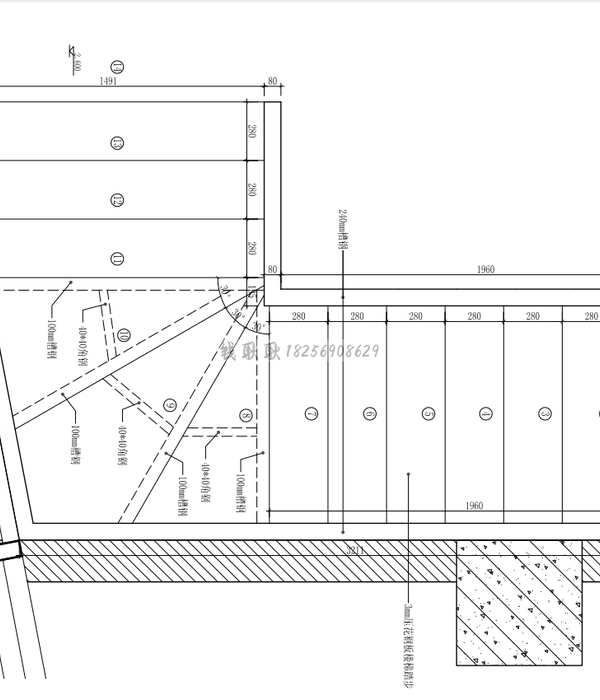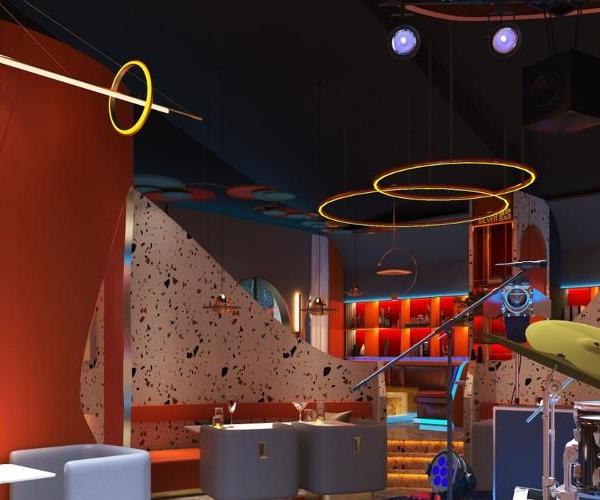此次圣安东尼奥学校项目包括翻新建筑主体立面、户外游乐场及供3-6岁儿童使用的通道、供0-3岁儿童使用的回廊/室内游乐场。这三项改造通过纯粹的几何图形联系在一起,利用儿童易于理解的元素统一了空间形象。
▼游乐场外观,external view
The commission carried out by San Antonio school has consisted of renovating the main façade of the center, an outdoor playground and access for children between 3-6 years old and finally a cloister / interior playground for children between 0 -3 years. The three interventions are related through pure geometries, unifying the identity of the entire space through elements easily understandable by children.
▼场地原状,previous situation
户外游乐场
OUTDOOR PLAYGROUND
该项目的一大理念是将庭院与周围环境联系起来,同时打开一扇通往街道的窗户,让行人可以观察和进入中心。此外,游乐场被围合起来,这不仅统一了整体,而且使其还向周围的自然环境开放。这种金属围栏将庭院中的每项改造衔接起来,并且适应每个区域的需求。在街道入口,它是可视围栏,到了通道部分,它就变成一堵厚墙,倚靠着原有的界墙。金属网格围合的空间中置入几何体量,从而生成不同路径,使通道区域变成粗大运动的场所。这些体量创造了庇护所、聚会地、通道和游乐区。最后,围栏将人带到木制平台区,该区域借鉴自然界中的几何体量,创造出山脉、洞穴、海滩等不同场景,鼓励儿童根据其尺度进行互动。
▼木制平台轴测,wooden platform axon
▼户外游乐场剖面,outdoor playground section
One of the main ideas of the project focuses on relating the courtyard to its surroundings, while opening a window to the street that allows passers-by observe and access to the center. On the other hand, the designed perimeter closure, unifies the entire complex and opens to the surrounding nature. This metal closure articulates each of the interventions carried out in the courtyard, adapting to the needs of each area. Starting from the street access, it works as a permeable closure to the view, then it becomes a thick wall against the existing party wall along the entire first access section. Introducing geometric volumes into the metal grid, which generate different paths between them, the transit area becomes a place for gross motor game. These volumes create shelter, meeting, passage and play areas. Finally, the closure leads you to the wooden platform area, which is a reflection of the geometrization of nature. The different scenarios designed to encourage children interaction are adapted to their scale, creating places as: the mountain, the cave, the beach…
▼户外游乐场,outdoor playground
▼金属网格围合的空间中置入几何体量,geometric volumes introduced into the metal grid
▼通道,access
▼粗大运动的场所,place for gross motor game
▼木制平台区,wooden platform area
▼模拟自然景物的几何体,geometry simulating natural scenery
▼孩子们在不同几何体之间玩耍,children play between different geometries
▼贯穿木平台的圆形元素,circular elements through the wooden platform
回廊
THE CLOISTER
衔接两个立面的18×18米有顶回廊改造有两个明确的目标。一是填补中庭和两条回廊之间的高差,同时创造半透明区域。二是覆盖中庭,获得更加有价值、有用且多功能的空间。新屋顶得益于材料的透明性,它无形地融入了庭院,并且在雨天显著扩大了可使用空间,同时允许自然光线进入。设计团队利用40厘米的高差建造出木制平台,并在平台设置圆形凹陷,为儿童提供丰富的功能选择。
▼回廊轴测分解,cloister axon exploded
The intervention in the 18×18 meters long cloister with covered corridors on two of its facades, had two clear objectives. On one side, to fill the high gap between the patio and the two corridors, to create a single diaphanous area and, on the other, to cover the patio for a more rewarding, useful and multifunctional space. The new roof, is integrated into the patio in an almost immaterial way, thanks to the transparency of the material. This cover significantly expands the useful space on rainy days while allows natural light to enter. Taking advantage of the existing 40 cm elevation change, a wooden platform has been built, where circular depressions are created to house different uses for the little ones.
▼中庭,patio
▼半透明回廊,diaphanous cloister
▼圆形凹陷,circular depression
外立面
THE FACADE
为了创建能够将不同体量统一起来的新轮廓,设计团队移除了建筑立面上的所有非必要元素。同时由于入口视野通透,项目还特别强调在街道和户外游乐场之间建立关系。
All non-essential elements have been removed from the façade in order to create a new profile that would unify all the different existing volumes. Special emphasis has been placed on creating a relationship between the street and the exterior playground, thanks to the visual permeability of the access.
▼建筑临街外观,street view
▼外立面,facade
SURFACE: 1200 m2
LOCATION: Durango, Bizkaia, Basque Country, Spain
ARCHITECTS: ELE Arkitektura (Eduardo Landia, Eloi Landia)
PHOTOS: Aitor Estevez
DATE: 2021-2022
CONSTRUCTION COMPANY: Eguraitz eraiketak, Carpinteria Egurbeta, EFZ egiturak
STUDIO WEBSITES:
{{item.text_origin}}

